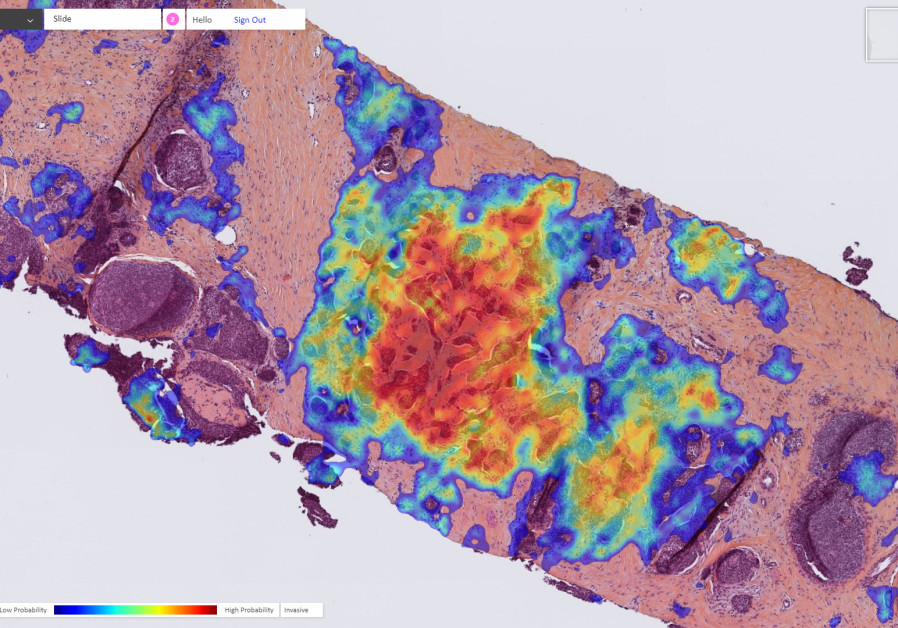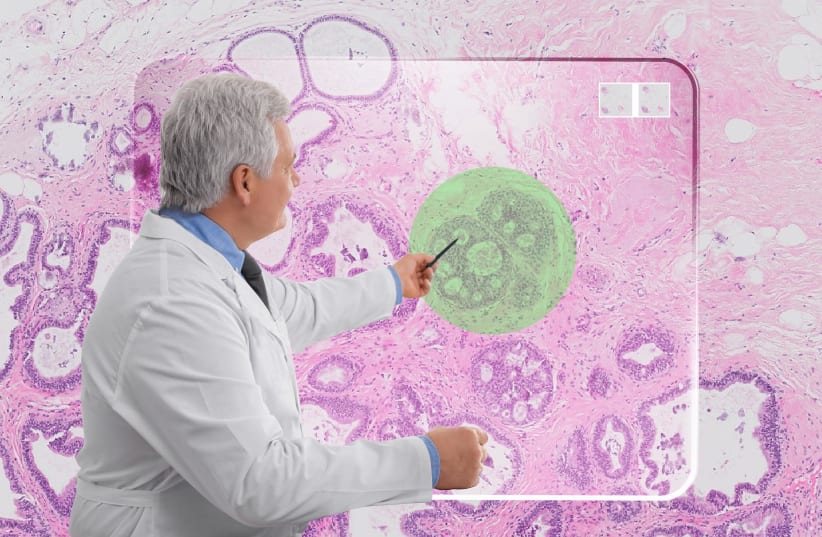Ibex Medical Analytics, a pioneer in artificial intelligence (AI)-based cancer diagnostics, and KSM, the Research and Innovation Center of Maccabi Healthcare Services – one of Israel’s largest HMOs – announced an innovative pilot of Ibex’s Galen Breast solution for AI-powered primary diagnosis of breast cancer at Maccabi’s Pathology Institute on Wednesday.
The pilot at Maccabi’s Pathology Institute includes 2,000 breast biopsies on which pathologists will use Galen Breast as a “first read” application. It is the first-ever deployment of an AI application for primary diagnosis of breast cancer.
Breast cancer is the most common malignant disease in women worldwide, with over 2 million new cases each year. Early and accurate detection is critical for effective treatment and saving women’s lives.
During the pilot, all breast biopsies examined at Maccabi will be digitized using a digital pathology scanner, and automatically analyzed by the Galen Breast solution prior to review by a pathologist. The solution detects suspicious findings on biopsies, such as regions with high probability of including cancer cells, and classifies them to one of three risk levels, ranging from high risk of cancer to benign. The Galen Breast First Read is designed to help pathologists diagnose breast biopsies more accurately, more efficiently, and at a considerably faster turnaround time compared to diagnoses on a microscope.

Ibex’s AI solution has been used at Maccabi’s Pathology Institute since 2018, and already today, all breast and prostate biopsies undergo AI-based second read, supporting improved accuracy and quality control. The solution alerts when discrepancies between the pathologist’s diagnosis and the AI algorithm’s findings are detected, thus providing a safety net in case of error or misdiagnosis.
“We are proud to use AI as an integral part of breast cancer diagnosis,” said Judith Sandbank, MD and director of the Pathology Institute at Maccabi. “We have already had a successful experience with Ibex’s AI solution, enabling us to implement quality control and perform second read on biopsies, and now we are making a significant leap forward with the integration of AI into primary cancer diagnosis.”
“Artificial intelligence is revolutionizing healthcare, and its integration into clinical practice will significantly improve the ability to diagnose cancer quickly and efficiently,” said Dr. Chaim Linhart, co-founder and chief technology officer of Ibex.“Our solutions are used in routine practice in pathology laboratories worldwide, and have already helped detect breast and prostate cancers that were misdiagnosed by pathologists as benign. It is now time to take AI to the next level and employ its capabilities across a broader range of the diagnostic workflow.”
Future expansions of the pilot will aim to include other healthcare providers.
